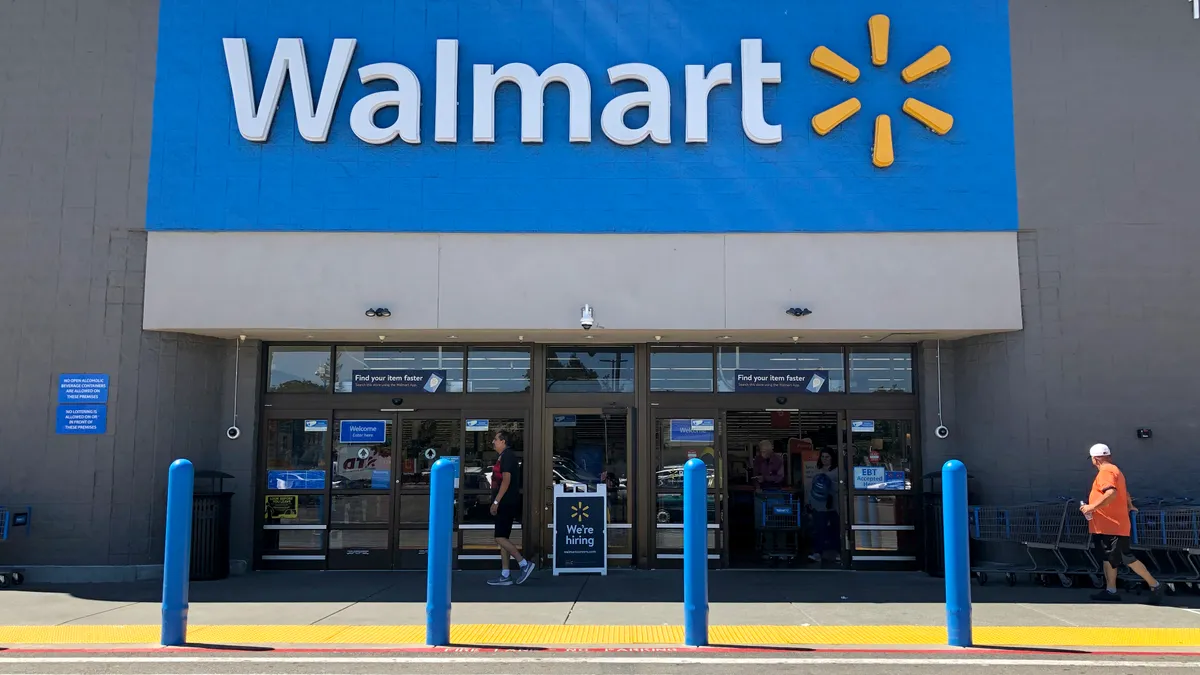Dive Brief:
- While a slump in jobs and other factors indicate the economy may be softening, retailer Walmart is still preparing for inflation to potentially impact its pricing, executives said this week during the company’s two-day investor community meetings.
- Walmart is “assuming that this year is going to be somewhat anomalous, still feeling the effects of higher prices last year,” CFO John Rainey told analysts in a Q&A Wednesday following its investor presentations. “But hopefully, as we get to next year and then certainly beyond that, we get to a more normalized inflationary environment — not just inflationary, but overall economic growth as well.”
- The retailer expects inflation to hover around 3% by the end of the year, Rainey — as well as CEO and President Douglas McMillon — said in response to analyst questions.
Dive Insight:
The company is “comfortable with our current price gaps to the market,” Rainey told investors Wednesday, noting it is “something we monitor very closely and we’re confident in our ability to win share by maintaining the price gaps we’ve established,” he said.
Nevertheless, inflation is “still an issue,” Rainey said, which will continue to impact retail as well as the larger economy over the next year.
Despite a decline in manufacturing as well as jobs, officials at the Federal Reserve remain committed to their 2% inflation target as a potential recession continues to loom. The Fed should move further into “restrictive territory,” with the federal funds rate reaching above 5%, Cleveland Fed President Loretta Mester said Tuesday, with other officials agreeing that inflation still remains too high for a pullback in monetary tightening.
Hiring slightly slowed in March, the Bureau of Labor Statistics said Friday, with total nonfarm payroll rising by 236,000 for the month and the unemployment rate inching down to 3.5%.
Walmart’s price challenges come after the retailer reported a weaker-than-expected outlook for fiscal year 2024 during its last earnings call in February, expecting same-store U.S. sales to grow by 2% to 2.5% and earnings per share between $5.90 to $6.05.
As part of its bid to reduce costs, the retailer is continuing to make investments in emerging technologies such as automation, Rainey said.
“The investments in automation are already far exceeding our productivity targets, in some cases almost 30% better, as we are able to flow inventory at lower costs and with less manual labor,” he said, noting Walmart expects 65% of its stores to be equipped with automation by the end of full year 2026.
Walmart’s automation push comes as the company takes steps to reduce its workforce and slow down hiring, having recently laid off about 2,000 workers across several U.S. warehouses, according to a Tuesday report by CNN.
Walmart is seeking to “complement” growth in headcount with emerging technologies, Rainey said Wednesday.












